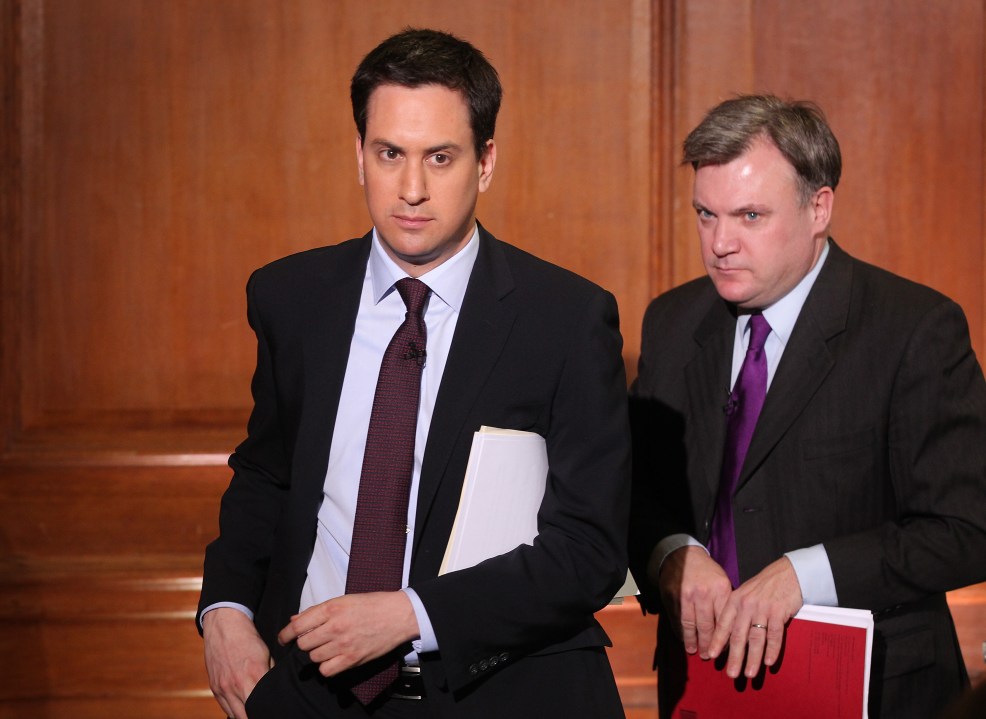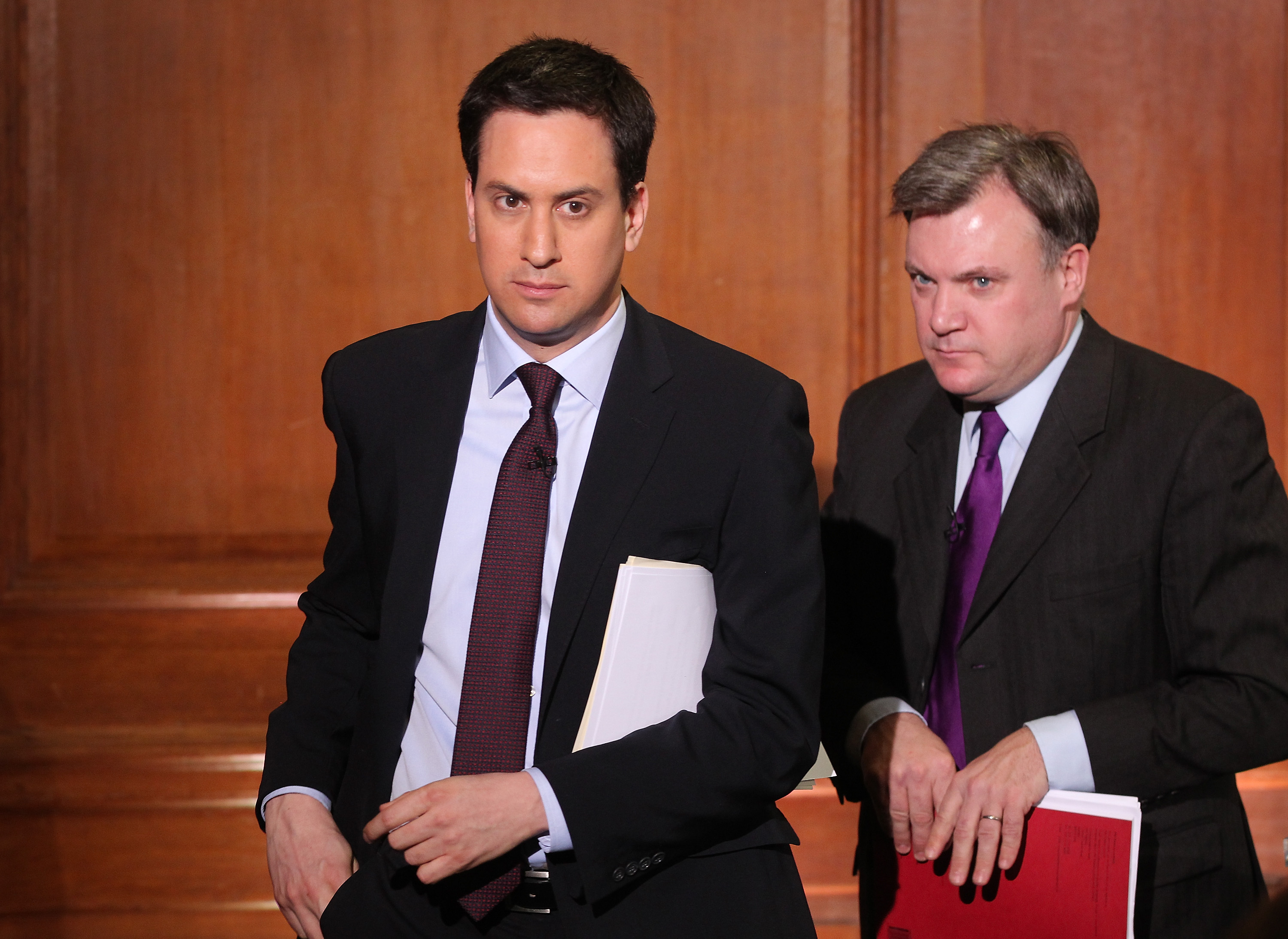 Intrigue, hilarious intrigue this morning, as the Telegraph releases a bunch of documents that clarify just how far the Brownites went to oust Tony Blair. They are, it is
said, from the personal files of Ed Balls, and they are copious in both quantity and variety. From straightforward poll
results to 31-page reports on how Brown is a Volvo not a BMW, this is a real insight into the numerous pathologies
of party and government. Here’s my five-point overview:
Intrigue, hilarious intrigue this morning, as the Telegraph releases a bunch of documents that clarify just how far the Brownites went to oust Tony Blair. They are, it is
said, from the personal files of Ed Balls, and they are copious in both quantity and variety. From straightforward poll
results to 31-page reports on how Brown is a Volvo not a BMW, this is a real insight into the numerous pathologies
of party and government. Here’s my five-point overview:
i) The leadership coup in waiting. It starts only two months after the 2005 general election, and Balls’ own ascent to Parliament, with a memo setting out the structure of Brown’s leadership campaign team. And it soon crescendos. A note from Brown suggests that party reform is a “behind the scenes issue we should be encouraging” at Labour shin-digs. “We could persuade people,” he adds euphemistically, “to take interest in pushing this as shorthand for change.” And he even sifts around for celebrity “figureheads” to rally support, including JK Rowling, Richard Curtis and — of course! — Big Brother’s Davina McCall. Writing on the day of a series of thwarted terror attacks in London, Balls asks bluntly, “who is GB?”
ii) Polishing Brown. Much text and brainpower is expended on making Brown electable, presentationally as well as politically. The key document, in this regard, is Deborah
Mattinson’s “Project Volvo” report, which contrasts her boss’s — ahem — “integrity” and
“steadfastness” with David Cameron’s verve and youthful energy. Brown “needs more likeablity,” it suggests, adding that he should “use Richard and Judy mode at all
times.” He ought to be briefed on “popular culture/current trends”. And David Cameron should be attacked, by “others, not GB,” for his “posh background”. The idea
of background baiting crops up elsewhere. “We must show why a Tory out of Eton, Oxford and high society trying to play on people’s aspiration for status cannot succeed,” says
another memo.
iii) Blocking Blair. There’s something wryly humorous about the fact that Brown recognised he was seen as a “block on reform”, but kept on being one anyway. At the top of Tony Blair’s draft handover agreement — which includes the proviso that he be afforded “full help and co-operation in getting
through the reform agenda” — Brown scrawled “shallow, inconsistent, muddled”. In his own draft,
Brown’s emphasis is on co-opting power rather than co-operating over its use. Another memo sets up an attack on the
Academies agenda: “City Acadmies costing XXX as much as state schools per pupil.”
iv) The Team Brown roster. The usual suspects feature throughout the documents, and especially in this one: Balls, of course, Mattinson, Sue Nye, Spencer Livermore, Douglas Alexander, Damian McBride, Ian Austin, Tom Watson, Stewart Wood, and so on. But two other names stand out. Ed Miliband may not be mentioned quite so frequently as some of his fellow conspirators, but it appears enough times for these documents to be awkward for him. Given Labour’s current aimlessness over schools, and their surrender of the reform agenda, I particularly enjoy the idea that Miliband was tasked to “prevent [the Tories from] taking over education and children as [an] issue.” And then there’s Sarah Brown, who was clearly being deployed as a political weapon even before Brown’s conference appearances as Prime Minister. This note from 2005 ponders the “lines” that she might take, and the strategies she might employ.
v) Pigs and liberals. I hope they set the graphologists on Ed Balls’ doodle of a gyrating pig:

Whereas Kremlinologists might be more interested in Brown’s (eventually futile) suggestion that, “We should talk to the liberals about some of the issues of the future.”
So what does it all come to? Comedy, mainly. I mean, Ed Balls’ claim that he took no part in an “insurgency” against Blair was funny last year. Now it’s one of the great, political side-splitters of our time.
Yet there are also serious ramifications from today’s Telegraph scoop, not least because many of the figures incrimated in the documents are still operating at the top of the Labour party. Whether it will have an effect on the party’s poll rating, I don’t know. (And it’s worth remembering that previous Brownite scandals, such as the bullying allegations, did little to shift voting intentions.) But this still threatens to incur reputational damage on Miliband and his, erm, New Generation. Intrigue, indeed.







Comments